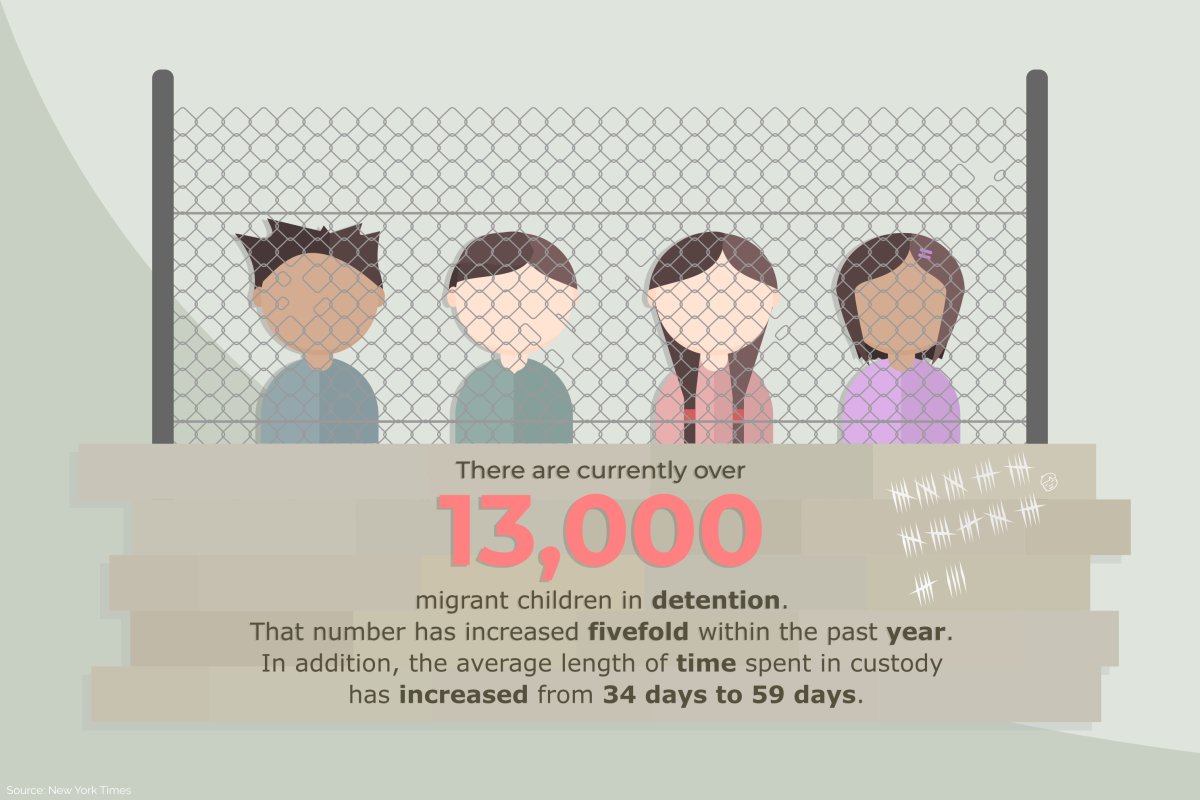Across the country, migrant children are being taken to a tent city in Tornillo, Texas as the government attempts to find room to house all of the children who have been detained while they wait for either a sponsor to take them in or for their immigration cases to make it through court.
These unaccompanied alien children (UACs) are children who either crossed the border without their parents, were separated from their parents or were detained by immigration authorities sometime after crossing the border. They are mainly from Guatemala, Honduras and El Salvador, according to the Department of Health and Human Services (HHS). The children at Tornillo have not been separated from their families by President Trump’s No Tolerance Policy. They are minors who are likely to be released sooner because they have been in federal custody for a while.
The camp in Tornillo was expanded in September to house 3,800 children To date, there are about 1,500 UACs detained there from the ages of 13 to 17 years old; 80 percent are male and 20 percent are female.
“Continuation of operation of the Tornillo temporary shelter is a necessary and prudent step to ensure that HHS has the capacity to provide appropriate care for UAC while a suitable sponsor is identified,” said an HHS fact sheet released Oct. 12.
The mass movement of so many unaccompanied minors and the length of time they have been in custody already has alarmed many immigration advocates. According to The New York Times, Children are given little advance warning that they will be moved, and it is done under the cover of darkness to prevent escape attempts.
In Tornillo, the camp operates like a self-contained city. The children sleep, eat and take lessons in the camp, and they’re given time for leisure activities. They have access to mental health counseling, legal services, medical professionals and a barber, and they are constantly under the supervision of shelter staff, according to NBC News.
In their fact sheet, the HHS states they have “a proven track record of accountability and transparency for program operations, as well as being a good neighbor in the communities where shelters are located.”
Mental health experts say meeting the physical needs of the children is not enough, and detainment of any sort, whether or not it is accompanied by forceful separation from parents, leads to high rates of depression, anxiety and post-traumatic stress disorder.
In a report titled “Detention of Immigrant Children,” the American Academy of Pediatrics said “negative physical and emotional symptoms” have been documented among detained children, and symptoms of post-traumatic stress do not always go away once the children are released.
“Young detainees may experience developmental delay and poor psychological adjustment, potentially affecting functioning in school,” the report reads. “Additionally, expert consensus has concluded that even brief detention can cause psychological trauma and induce long-term mental health risks for children.”
According to the HHS, the average length of a child’s stay at Tornillo is 59 days, up from the average of 34 days a year ago. HHS staffers and critics alike agree this setup is not ideal, but The New York Times reports that there are plans to keep Tornillo open through the end of the year and longer if necessary.
Texas temporary housing facility expands to hold growing number of detained migrant children
October 15, 2018
Donate to The Battalion
Your donation will support the student journalists of Texas A&M University - College Station. Your contribution will allow us to purchase equipment and cover our annual website hosting costs.




















